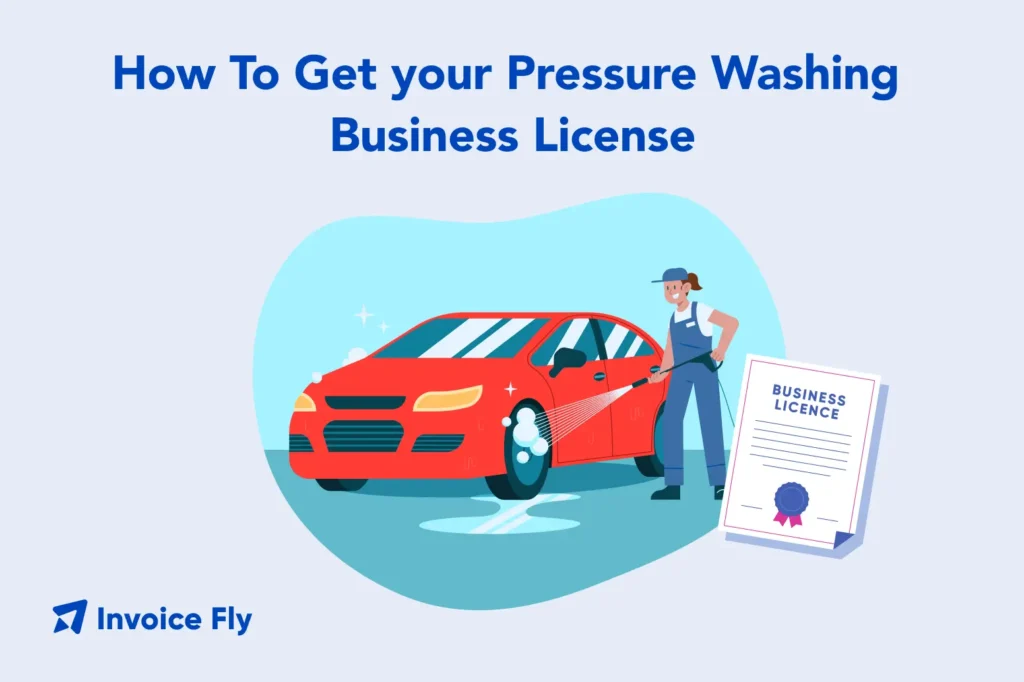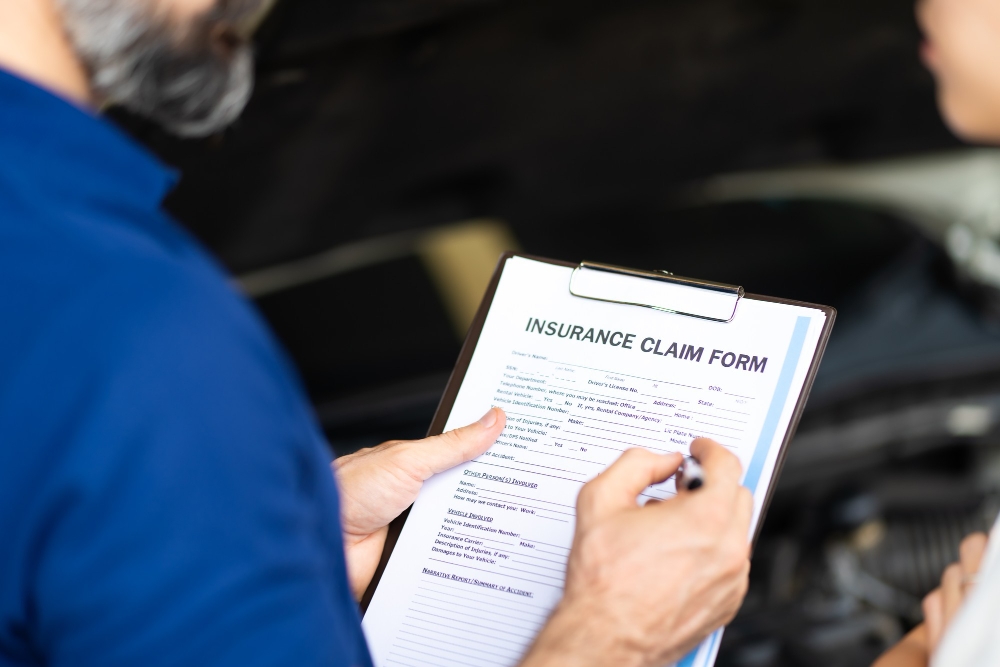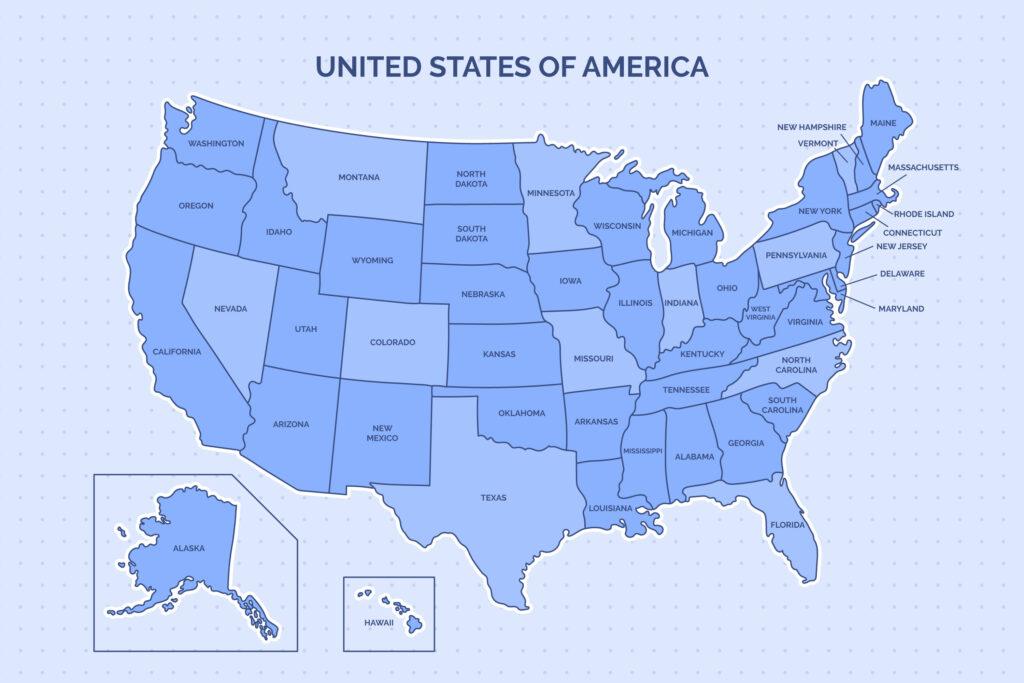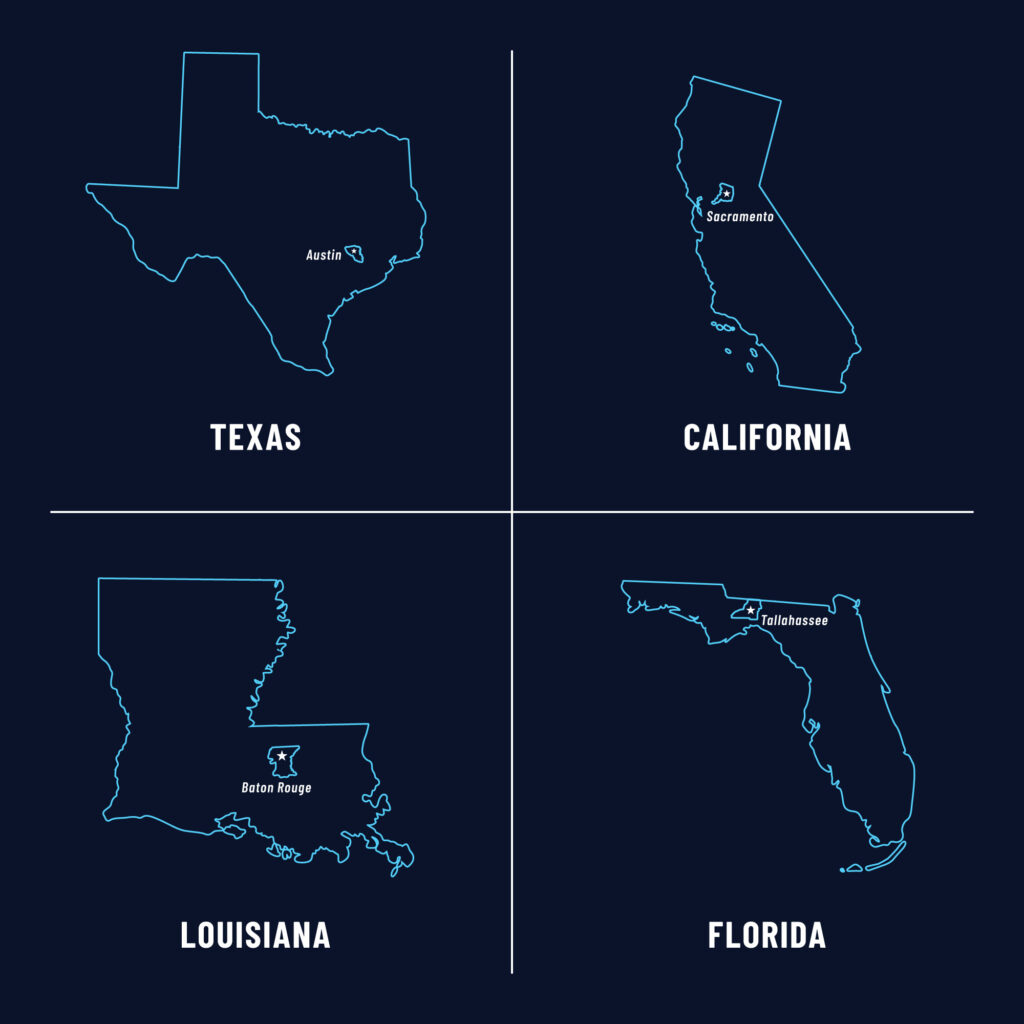How To Get Your Pressure Washing Business License

Table of Contents
- Why Is It Important to Get a Pressure Washing Business License?
- Do You Need a License to Start a Pressure Washing Business?
- Requirements for a Pressure Washing License
- How Much Does It Cost to Get a Pressure Washing License?
- Pressure Washing License Costs by Location
- How to Apply for a Pressure Washing License: Step-by-Step
- Other Certifications That Boost Your Pressure Washing Business
- How Long Does It Take to Get a Pressure Washing License?
- Common Mistakes When Applying for a Pressure Washing License
- A Better Alternative for Contractors
- FAQs about How To Get Your Pressure Washing License
Starting a pressure washing business is exciting, but before you can begin booking clients, you’ll need the proper licenses and permits. Securing a pressure washing business license ensures you comply with state laws, protects your business from financial loss, and builds credibility with customers who expect professional contractors to be licensed and insured.
According to the U.S. Small Business Administration, registering and licensing your business is one of the most important early steps to operate legally and avoid costly penalties.
In this guide we’ll break down:
- Why licenses matter for pressure washing businesses
- The requirements and costs by state
- Step-by-step instructions to apply and avoid common mistakes
- Insurance requirements such as pressure washing liability insurance and contractor insurance for cleaning businesses
- Certifications that can improve trust with clients
Why Is It Important to Get a Pressure Washing Business License?

Legal Compliance
Every state has rules that pressure washing businesses must follow. Some require a contractor’s license, others mandate general business registration, and many cities require environmental permits for wastewater disposal. Operating without proper licensing can result in fines, lawsuits, or being barred from bidding on contracts.
Building Trust With Customers
Customers increasingly want proof that contractors are licensed and insured before letting them work on their property. A license communicates professionalism, accountability, and commitment to quality. Licensed businesses often win more contracts, whether for window cleaning, gutter cleaning, or soft wash jobs.

Access to Business Insurance and Contracts
Most insurance agents require proof of licensing before they issue general liability insurance, workers compensation insurance, or commercial auto insurance. In addition, many commercial contracts and government projects require businesses to show proof of licensing and insurance coverage before they can start a job site project.
This is particularly important in states like California and Florida where regulations are strict.
Protecting Your Business Reputation
Licensing protects against financial loss and safeguards your business reputation. Being licensed reduces disputes, ensures peace of mind for clients, and helps secure repeat business. It also allows you to file a claim if an accident occurs, ensuring coverage options are in place when needed.
For more advice on setting up your business, see our guide on How to Start a Pressure Washing Business: Complete Guide.
Do You Need a License to Start a Pressure Washing Business?

Requirements Vary by State/County
The requirements differ significantly by location. Some states have strict rules, while others offer more flexibility.
California
- Requires a contractor’s license if any job exceeds $500 in cost.
- Must provide proof of general liability coverage and workers comp insurance if you employ staff.
- Environmental permits for wastewater discharge and chemical use are often required.
- Contractors may also need a surety bond depending on project type.
Florida
- Requires a local business license issued by the county or city (examples include Ocala, FL, where permits are enforced strictly).
- Contractors with employees must carry workers compensation insurance.
- Commercial auto insurance is mandatory for company vehicles.
- Environmental regulations often mandate water runoff permits.
New York
- Requires a home improvement contractor license in many counties for residential cleaning.
- Must show proof of general liability coverage and workers comp.
- Additional insurance such as umbrella coverage is often recommended due to higher legal risks.
Texas
- General business license required, contractor licensing more flexible.
- Workers comp is optional unless working on public contracts.
- Commercial auto insurance is recommended for financial protection.
- Local municipalities may require permits for wastewater discharge or noise restrictions.
Types of Licenses

- General business license:
- Legal registration to operate a cleaning company.
- Usually issued by a city or county clerk’s office, this license allows you to operate legally within that jurisdiction.
- Costs vary based on location, and you’ll typically need to renew it annually.
- Contractor license:
- Needed in some states for larger or higher-value projects, such as jobs exceeding $500 in California.
- Obtaining this license may require passing an exam, proving experience, and showing proof of insurance and bonding.
- It is critical for contractors who want to bid on commercial or government contracts.
- Local permits:
- Environmental permits regulating wastewater and chemical use.
- Some municipalities require runoff permits to ensure compliance with the Clean Water Act.
- These permits protect local waterways and demonstrate that your business meets environmental compliance standards.
For more on licensing, check out our guide: How To Get Your Pressure Washing Business License.
Requirements for a Pressure Washing License
General Business License
A standard license from your city or county that allows you to legally operate. This usually involves registering your business name and paying a small fee.
Contractor License
Specific to states like California, where contractor boards regulate job values and issue licenses for specialized work. This may include testing and background checks.
Local Permits & Environmental Permits
These ensure you comply with water conservation laws, wastewater disposal, and safe chemical use. Municipalities may require discharge permits if wastewater enters storm drains. For soft wash and softwash jobs, you may also need permits to regulate chemical application.
Insurance Requirements
Most states require:
- General liability insurance: Covers third-party property damage and bodily injury.
- Workers compensation insurance: Pays medical bills and wages for injured employees.
- Commercial auto insurance: Covers business-owned vehicles transporting tools and equipment.
- Commercial property insurance: May be required if you own or rent office/storage space.
- Tools and equipment insurance: Protects expensive items like pressure washers, spray nozzles, and soft wash systems.
Bonding Requirements
A surety bond may be required to guarantee that clients are compensated for incomplete work or disputes.
You may also be interested in related reading:
- How To Price Pressure Washing Jobs in 2025?
- How To Pressure Wash A House: Step-by-step Guide
- How To Use A Pressure Washer: A Contractor’s Guide.
How Much Does It Cost to Get a Pressure Washing License?
Average National Cost Ranges
- $100–$500 for a local business license.
- $300–$1,000 for contractor licenses in stricter states.
- Environmental permits may cost $50–$300 depending on water regulations.
- Insurance add-ons increase overall pressure washing insurance costs.
- The cost of small business insurance for pressure washing averages $500–$1,500 per year for general liability coverage, with higher premiums if you add workers compensation or commercial auto policies.
Factors That Influence Cost
- State and county location (fees vary widely).
- Business structure (LLC vs sole proprietorship).
- Insurance add-ons like commercial property insurance or tools and equipment insurance.
- Surety bonds if required.
- Certifications or training courses like PWNA certification.
Pressure Washing License Costs by Location

California
- Contractor’s license required for jobs $500 or more.
- Costs $300–$1,000 depending on board fees and testing.
- Must carry general liability insurance, workers comp, and environmental permits.
- Surety bond may also be required.
Florida
- Business license issued by counties/municipalities ($150–$500).
- Must provide insurance coverage proof (workers comp, auto, liability).
- Water runoff permits often required.
- Costs can reach $600+ with additional insurance. Contractors in cities like Ocala, FL face strict enforcement.
Texas
- Business license costs $100–$400.
- Contractor licensing not always required, but local permits may apply.
- Insurance requirements vary based on client or contract.
- Many contractors voluntarily add umbrella or tools and equipment insurance.
How to Apply for a Pressure Washing License: Step-by-Step
Step 1: Register Your Business
Choose an entity type (LLC, sole proprietorship, etc.), file paperwork with the Secretary of State, and obtain an EIN from the IRS.
Step 2: Apply for Local Business License
Submit an application to your county/city clerk, pay required fees, and register your trade name.
Step 3: Apply for Contractor/Environmental Permits
File with your state contractor board and local environmental agency for wastewater/chemical permits.
Step 4: Show Proof of Insurance & Bonding
Provide certificates of general liability insurance, workers comp, and commercial auto coverage. Secure a surety bond if your state requires it. Many states require proof of coverage limits when submitting an insurance quote.
Step 5: Pay Fees and Get Approved
Pay applicable state and local fees. Approval times vary from 2–8 weeks depending on testing and paperwork.
Other Certifications That Boost Your Pressure Washing Business
Power Washing Certifications
Certifications from PWNA (Power Washers of North America) or UAMCC (United Association of Mobile Contract Cleaners) validate your expertise and attract clients.
OSHA Safety Certifications
OSHA courses ensure safe use of high-pressure equipment and compliance with workplace safety laws.
Environmental Compliance Certifications
Certifications for wastewater management and chemical handling can open doors to government or eco-conscious contracts.
Business Marketing Certifications
Consider creating a pressure cleaning business card template with certification logos. This small step increases trust and makes your business stand out locally.
How Long Does It Take to Get a Pressure Washing License?
Average Processing Times
- Business licenses: 1–4 weeks depending on county workload.
- Contractor licenses: 4–8 weeks due to testing or board review.
Expedited Options
Some states/counties offer expedited services for additional fees, reducing wait times by up to 50%.

Common Mistakes When Applying for a Pressure Washing License
Not Registering the Correct Business Entity
Choosing the wrong entity increases liability or tax obligations.
Forgetting Insurance Requirements
Applications may be denied without proof of liability, workers comp, and commercial auto insurance.
Ignoring Local Water/Environmental Permits
Many applicants forget water runoff regulations, leading to fines.
Underestimating Costs
Failing to budget for bonding, permit renewals, or insurance add-ons causes unexpected financial strain.
A Better Alternative for Contractors
Licensing is just one part of building a foundation for your cleaning company. Managing finances is equally important. With Invoice Fly’s Invoicing Software, you can:
- Create professional invoices
- Track job site expenses
- Accept online payments
- Maintain records to file a claim when needed
Also explore Invoice Generator and Invoice Templates to stay organized.
FAQs about How To Get Your Pressure Washing License
No. Some require only a general business license, others require contractor licensing and permits. Check pressure washing insurance requirements by state to ensure compliance.
Most states require general liability coverage, workers comp, and commercial auto insurance. Additional insurance may also be required.
$100–$500 on average for a business license, and up to $1,000 for contractor licenses. Costs vary based on state and coverage limits.
Yes, some states require a surety bond for commercial or government projects.
You could face fines, lawsuits, or risk losing contracts. It also undermines client trust and could increase your pressure washing insurance costs if you later seek coverage.
